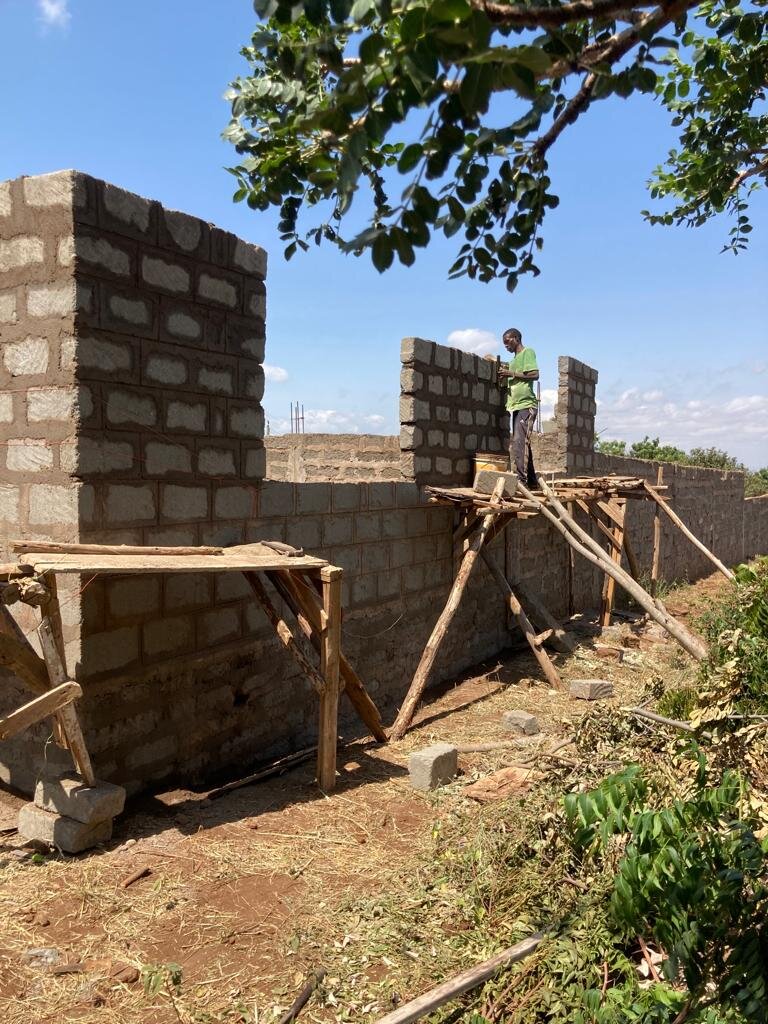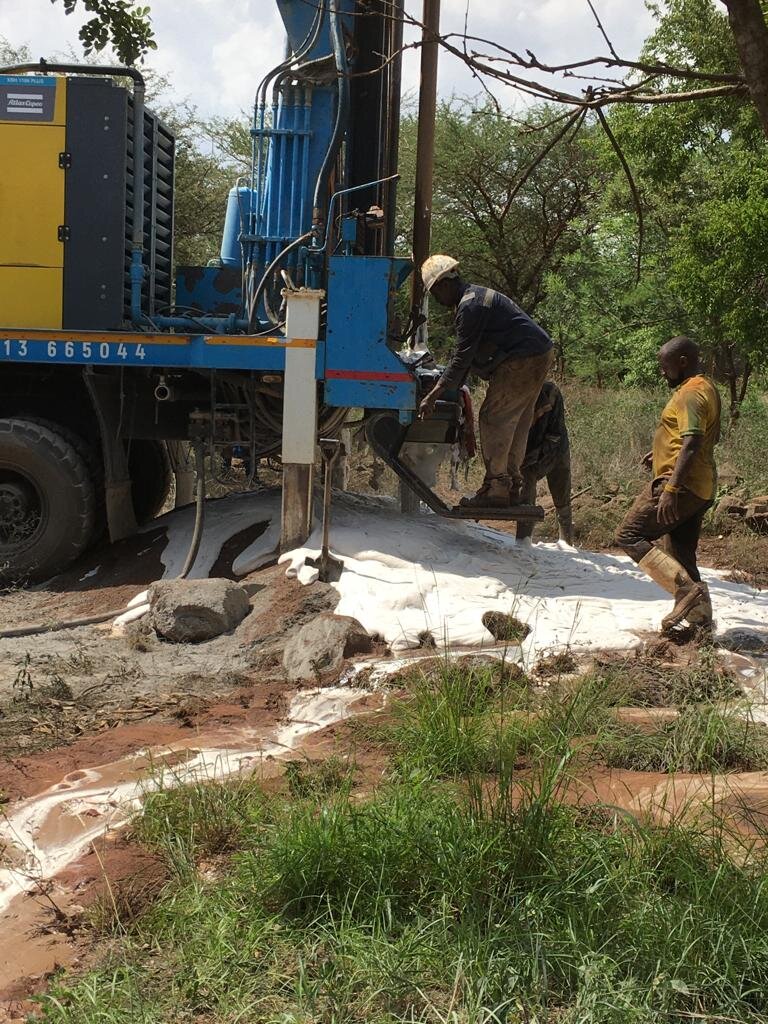By Katy Allen-Mtui | Director
I hope this finds you well and in good spirits.
As I write, the Commonwealth Heads of Government Meeting is taking place in Kigali, Rwanda. Day schools in Kigali are closed for this week to help to reduce the traffic. That does not affect where we work, but with the end of school-year examinations starting next week lessons are concentrating on revision.
Our work with the teachers and the pupils continues to go well, and week by week we see pleasing results. The teachers are becoming used to the methodology which is set out for them in the NOEC Teacher’s Books, so much so that it is now second-nature for teachers to make sure that the pupils ‘SEE the meaning’ of what they are teaching, and then have enough time to practise. The teachers also now see that the NOEC books do most of the work for them, and that teaching a subject which they previously dreaded is now rewarding.
So, it is particularly disappointing that the government seems intent on continuing with, and expanding, its Equip programme which uses the materials of New Globe Education. The programme is based on the use of Tablets to give teachers scripted lessons. It is important to bear in mind that most primary school teachers struggle to speak and understand English.
I will give an example (transcribed exactly) from one of the lessons on the Tablet which is what the teachers are given as their lesson plan:
Teacher Review: Vocabulary Revision – 3 minutes
1. Write on the board: Bread, Broom, Doctor, Teacher, Desk
2. Turn and tell your deskmates what these words mean. Begin.
3. After 30 seconds: Eyes on me.
4. What is a teacher? Cold call a pupil. [Signal] A person who works in a school.
5. What is a desk? Cold call a pupil. [Signal] A place where you sit to work.
6. What is bread? Cold call a pupil. [Signal] A soft food made of grain.
7. In each of the following, you are given two pairs of words, then a fifth word. Study the pattern carefully to complete the problems.
8. I will call on a pupil to read the example pairs. Cold call a pupil. [Signal] Time, it, nine, in, none, _
9. Mention that the second word contains the first two letters of the first word, but in reverse order.
10. The word ‘it’ takes the first two letters of ‘time’ and switches their order. The word ‘in’ takes the first two letters of ‘nine’ and switches their order.
11. Why should the word ‘on’ come from ‘none’? Cold call a pupil. [Signal] The word ‘on’ takes the first two letters of ‘none’ and switches their order.
It is important to show this because it evidences a serious lack of understanding about learning, and especially about learning a foreign language. The first thing to note is that the language of instruction uses advanced English, which is not only difficult for the teachers but is also beyond the level of the language being taught, e.g. ‘their order’, ‘reverse order’, and ‘switch’. The second point is that even native English speakers would have difficulty in giving a meaning for the word ‘desk’ ‘bread’ etc. The best way to test that the pupils understand the meaning of simple nouns is by recognition using pictures. The third point is that the exercise using pairs of words and reversing letter order has little point. It is a complicated exercise and there is no element of understanding required. Anyone could carry out the exercise without understanding the meaning of the words and so it teaches nothing. It also does not help word recognition, which is a valuable part of language learning.
Compare an exercise from our NOEC books which helps to develop word recognition. The Teacher’s Book explains in Kinyarwanda (the mother-tongue of the teachers) the purpose of the exercise and gives the teacher an example, in order to show the pupils what they are to do. The pupils then open the Pupil’s Book and work on the exercise which uses words the pupils have already come across many times:
Find the same word in A. and B.
A. B.
(1) hat (1) has
(2) that (2) tin
(3) has (3) that
(4) tin (4) hen
(5) hen (5) hat
This exercise is simple, it’s fun for the pupils, and yet it has a serious underlying learning intention. Word recognition is an important skill to develop fluent reading. It aids pupils’ future studies as they are based on reading and comprehension.
It is equally disappointing that we still have not been able to meet anyone from the Ministry of Education or the Rwanda Education Board, and nor has any of the officials been to see our work in action. We are still persevering to make this happen.
In Tanzania we are building two new classrooms for the Bright pre-primary and primary school. Loveland Makundi, the head of the school, already has over 300 pupils. Pupils are now enrolling for the new school year starting in January 2023 and it seems that the school will then have many more pupils. The new classrooms will mean that there will be sufficient classrooms for all the pupils to learn in classes of not more than 35 pupils.
Perhaps the most exciting development is that in March we drilled for water! The lack of rain and lack of mains water was becoming a big problem for Bright school. The drilling took just over 6 hours and went to a depth of 130 metres. At some stage they put in soap powder, apparently to lessen the friction on the drill caused by the underground rocks. This meant that at the first ‘striking of water’ a mass of bright white soap suds came spilling forth. After a while, lovely clear water came. We have now linked electricity to the well and the school is getting regular water to fill its tanks.
Thank you for reading, and most importantly thank you for continuing to give towards our work. Whatever the governments may do, we are giving pupils a good foundation in English which will stand them in good stead throughout their future education.
Thank you all so very much.
With very best wishes
Katy
Project reports on GlobalGiving are posted directly to globalgiving.org by Project Leaders as they are completed, generally every 3-4 months. To protect the integrity of these documents, GlobalGiving does not alter them; therefore you may find some language or formatting issues.
If you donate to this project or have donated to this project, you can receive an email when this project posts a report. You can also subscribe for reports without donating.
Support this important cause by creating a personalized fundraising page.
Start a Fundraiser
